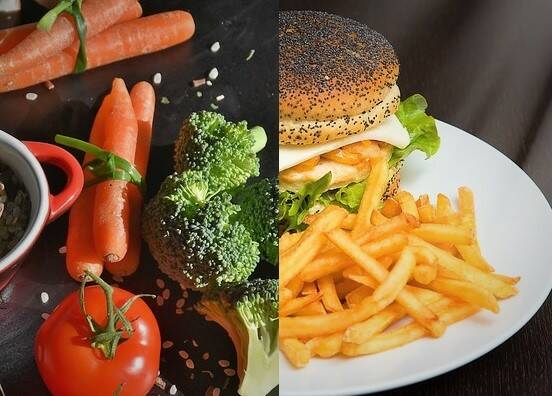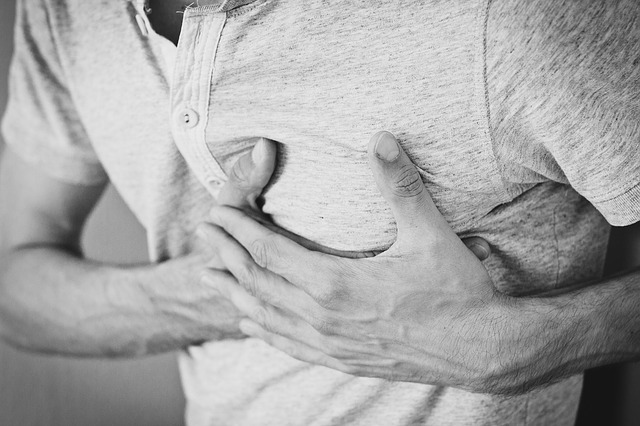- mayoclinic.org - 10 ways to control high blood pressure without medication
- healthline.com - The 17 Best Foods for High Blood Pressure
- medicalnewstoday.com - Fifteen good foods for high blood pressure
What foods are suitable and unsuitable for high blood pressure?

High blood pressure is a disease and you have to learn to live with it. It is classified as a disease of civilization. It is also called the silent killer. The main reason for this name is that high blood pressure does not hurt.
Article content
A change in lifestyle is important, which includes adding appropriate and eliminating inappropriate foods from the diet.
You ask: Which foods are appropriate and which ones are inappropriate for a disease called high blood pressure?
Civilisation diseases are those that are common in the population, frequent and affect a high percentage of people. They are a global problem. They are a common cause of death. High blood pressure is one of these diseases.
Hypertension doesn't hurt, but it has serious complications

High blood pressure does not hurt and may not have any symptoms.
Sometimes it happens that its complication is the first symptom. For example, it can be a stroke, heart attack, but also death.
For early detection of hypertension, as high blood pressure is professionally called, preventive examinations are very important. In case high blood pressure is diagnosed, its treatment is initiated.
In particular, a general practitioner, an internist and a cardiologist work together to diagnose high blood pressure. If it is caused by another disease, a specialist in that field (which may be, for example, a nephrologist or an endocrinologist) also joins in.
In its treatment, a number of drugs and active substances are applied.
You can also read more about hypertension in the article High blood pressure as a symptom
What should be remembered?
It is important to remember that in hypertension, treatment is not interrupted.
This is even if the blood pressure values stabilise, are normal in the long term and the occurrence of problems is minimal or does not occur at all.
A person may feel well, but he is not cured.
Blood pressure values are given in the article.
Several factors affect blood pressure
There are, of course, many factors that affect blood pressure. Lifestyle is important. And also what foods a person likes and eats in the long term.
Read also the article about the influence of lifestyle on low blood pressure.
With high blood pressure, it's more complicated.
Hypertension is a disease and its treatment is lifelong.
Skipping treatment or interrupting it can have serious consequences.
The following factors affect blood pressure:
- age, especially older age
- genetic predispositions
- primary disease
- being overweight
- salt intake
- alcohol
- smoking
- stress
- physical activity
- overall lifestyle
A healthy lifestyle and an appropriate diet have a positive effect on blood pressure values. Physical activity is important. A rational and balanced diet is also beneficial.
Minerals play an important role, especially:
- calcium
- potassium
- magnesium
Rutin, a flavonoid of plant origin, is also beneficial. It has antioxidant properties and helps with high blood pressure. It is found in buckwheat and currants. Arginine has been shown to have a beneficial effect in lowering blood pressure.
Adequate vitamin content is also needed:
- vitamin E
- B vitamins, especially B3
- vitamin C
Do you know what foods are good for high blood pressure?
A rational and balanced diet is the basis of every day. Food intake should be divided into five portions throughout the day. Cereals, vegetables and fruit will guarantee a sufficient intake of fibre, vitamins and minerals.
Drinking is an important part of the day. It is influenced by several factors that are related to the loss of fluids from the body. It is important to remember that 2 litres of fluids are essential. During physical exertion, in hot weather, vomiting, diarrhoea and fever, water intake should be increased a little more.
Foods suitable for consumption, especially for optimal representation of necessary substances:
- Onions
- leeks
- garlic
- parsley
- potatoes
- beetroot
- celery
- paprika
- cucumber
- broccoli
- cabbage
- legumes
- lentils
- beans
- peas
- soybeans
- chickpeas
- cayenne spices
- chilli seasoning
- saffron
- spinach
- turmeric
- aubergine
- nuts
- almonds
- sunflower seeds
- poppy seeds
- peanuts
- pistachios
- cocoa
- chocolate with high cocoa content
- yoghurt
- kefir
- brewer's yeast
- seaweed
- green tea
- eggs
- lean meat
- rabbit meat
- poultry
- liver
- fish
- buckwheat
- wheat germ
- bran
- oat flakes
- cereal germ
- cereals
- wholemeal bread
- oil
- olive
- sunflower
- wheat
- corn
- apples
- grapefruit
- citrus
- peaches
- plums (also dried)
- gooseberries
- pineapple
- coconut
- mango
- banana
- daily dose of vitamin C 500 mg
- avocado
Inappropriate foods for hypertension
On the other side of the spectrum are foods that have a negative effect. By their composition, they increase blood pressure and their presence in the diet should be partially or completely limited.
Unsuitable foods for hypertension are
- fats
- saturated fatty acids
- reduce their intake
- found in cheese, butter, pate, meat
- trans fats are harmful
- their content is highest in fried foods such as chips, convenience foods
- saturated fatty acids
- alcohol
- the rule of thumb is that one glass of beer or wine does no harm
- salt
- its daily intake should not exceed 3 g
- salt already present in products such as sausages, sausages and pates should be taken into account
- coffee and black tea
- one cup of coffee or black tea a day is not a sin, but higher doses should be avoided
- sugar, white bread, cakes, cakes, pastries, sweets
- smoked fish, sausages, wraps, tinned fish
- sodium-containing mineral water
- ready-made sauces
- salted bars, nuts and pretzels
- jams and preserves
- high salt content broths, marinades, mustards, ketchup
- sausages, bacon
- cheeses, especially processed, aged, mould and most hard cheeses
The essence of a dietary regime for hypertension is a rational representation of food components such as vitamins, minerals and fibre. Restriction is good in the case of sodium, i.e. salt, and unhealthy fats.
Alcohol is not prohibited, but its amount should be limited to the recommended maximum.
In addition to food, a healthy lifestyle, physical activity, stress reduction and fatigue are important. Smoking is a major negative factor and it is best not to smoke in hypertension.
Consistent treatment is necessary for high blood pressure. This is true even if it is secondary hypertension that is the cause of another disease. Treatment is not interrupted.
Video about diet in hypertension
Interesting resources
Related










